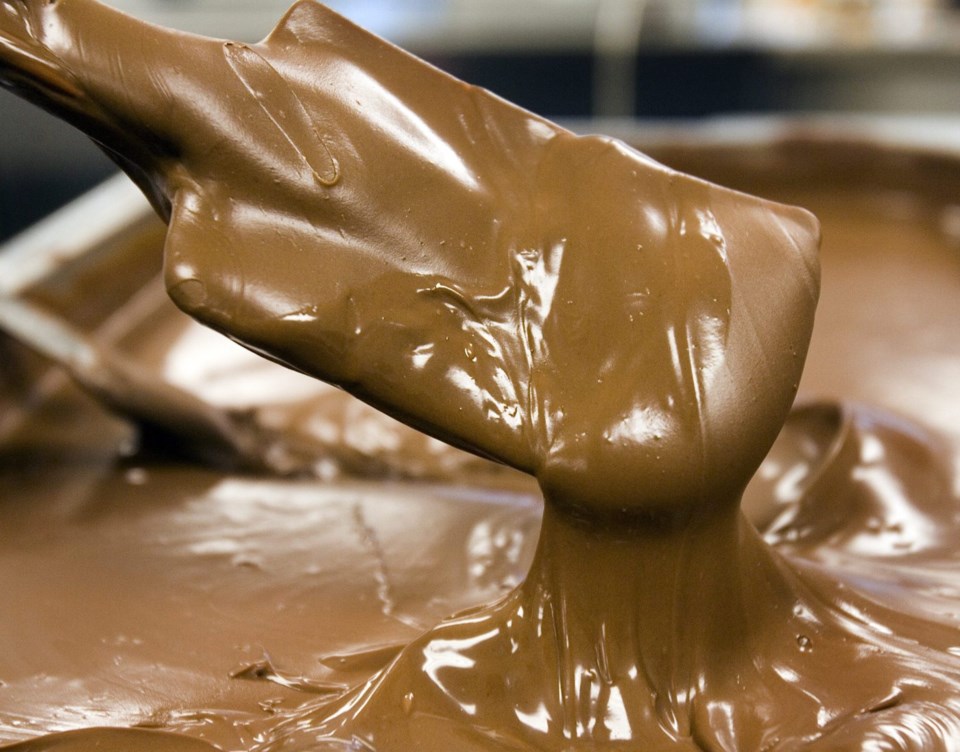Canadian sugar and confectionary companies would be hit particularly hard if U.S. tariffs come into play because most of the industry's sales go south of the border, experts say.
“Sugar and confectionary does stand out as one of those sectors, especially in the short term, that is very reliant on the U.S., and therefore could see big impacts from U.S. tariffs," said Farm Credit Canada senior economist Amanda Norris.
The industry is one of Canada’s most vulnerable agri-food sectors because more than 80 per cent of its sales are to the U.S., according to FCC.
Canada and the U.S. are currently in a month-long truce after President Donald Trump threatened sweeping tariffs on Canadian imports. Canada has said it will retaliate with tariffs of its own.
Agriculture and food economic consultant Sebastien Pouliot said if the U.S. does introduce widespread tariffs on Canadian goods, the U.S. could start importing more confectionary products from other places like Europe.
“I would expect there would be a significant decline in exports of candy products to the United States (from Canada) in that case,” said Pouliot.
If the tariff threats become reality, “it seems very likely that our U.S.-based customers would probably pass on ordering from us for now,” said Elyse Wahle, owner of Sullivan & Bleeker, a nut-free bakery in the Toronto area.
The company’s Boom Candy brand sells to retailers across North America — but if tariffs come into play, Wahle's U.S. customers can’t absorb a 25 per cent cost increase, and she can’t cut her prices to make up for it.
She’s hoping some of those lost sales can be made up in Canada, where there's increased demand from retailers looking to stock up on domestic brands.
Trade data shows that in 2024, Canada exported $5.3 billion in sugar and confectionary products to the U.S. It's the top supplier of confectionary products to the United States, ahead of Mexico and Germany, according to Agriculture and Agri-Food Canada.
Canada also exports refined sugar, with the U.S. by far its biggest export customer. According to the Canadian Sugar Institute, Canada shipped almost 60,000 tonnes of refined sugar to the U.S. in 2023.
Canada's sugar and confectionary industry is "overdeveloped" compared with the U.S., said Pouliot, because sugar prices are more attractive north of the border.
The price of sugar is significantly cheaper in Canada because of existing protectionist quotas and tariffs in the U.S., said Pouliot.
That gives companies manufacturing in Canada an advantage when it comes to making candy and other confections, he said: “It’s companies working around the tariffs.”
The tariffs and retaliatory tariffs currently on the table would have a "significant adverse impact" on Canadian company Rogers Sugar and its operating subsidiary Lantic, the company said in a Feb. 6 earnings release.
Cadbury chocolate-maker Mondelez International, which has manufacturing operations in Canada, said in its earnings report that any escalation in the trade dispute would "pose a significant risk" to its sales and input costs.
Other multinational confectionary brands with manufacturing operations in Canada include Hershey, Nestle and Mars.
Some companies are already looking at ways to pivot as they face uncertainty over the next four years, said Lisa McEwan, co-owner of Hemisphere Freight and Customs Brokerage, which helps clients — including candy companies — import and export between the U.S. and Canada.
"A huge concern is that the margins just can't take a 25 per cent increase," said McEwan.
"It's not feasible."
Over the short term, there’s not much the Canadian industry can do to respond to tariffs, said Pouliot.
If it looks like tariffs are there to stay, then multinational companies are “going to look more seriously into building new plants within the United States," he said.
If Canada retaliates, that would also have a big impact on imported products like packaging, said Norris.
That's the worry for Canadian companies that don't rely on the U.S. for sales, like Vancouver-based Purdy's Chocolatier, which celebrates its 118th birthday later this year.
The company imports some important raw materials, in particular nuts, from the U.S., said president Lawrence Eade.
For example, the namesake pecans in the company's staple Sweet Georgia Browns actually come from Georgia, he said.
"We're not going to get around that. We're not going to replace those," he said.
Wahle said during the COVID-19 pandemic, she started sourcing more packaging from the U.S. to avoid supply chain disruptions. Now, she’s backtracking to avoid tariffs.
“I've already been in contact with European vendors to try to bring in stuff from Europe that is comparable in quality,” she said.
At the same time, the industry is also dealing with a significant rise in cocoa prices as farmers struggle with extreme weather.
With the loonie relatively weak right now, that could help offset some of the pressures from potential tariffs by the U.S., said Norris, since it makes Canadian imports a little cheaper.
But on the other hand, the weaker loonie makes imports from the U.S. — like packaging — more expensive, she said: “So it’s a balancing act there.”
There's one silver lining for companies like Purdy's: the "buy Canadian" push that has shoppers across the country favouring Canadian products.
"This is absolutely the moment for Purdy's to really scream loud about what it means to be a Canadian business," said Eade.
This report by The Canadian Press was first published Feb. 17, 2025.
Rosa Saba, The Canadian Press




